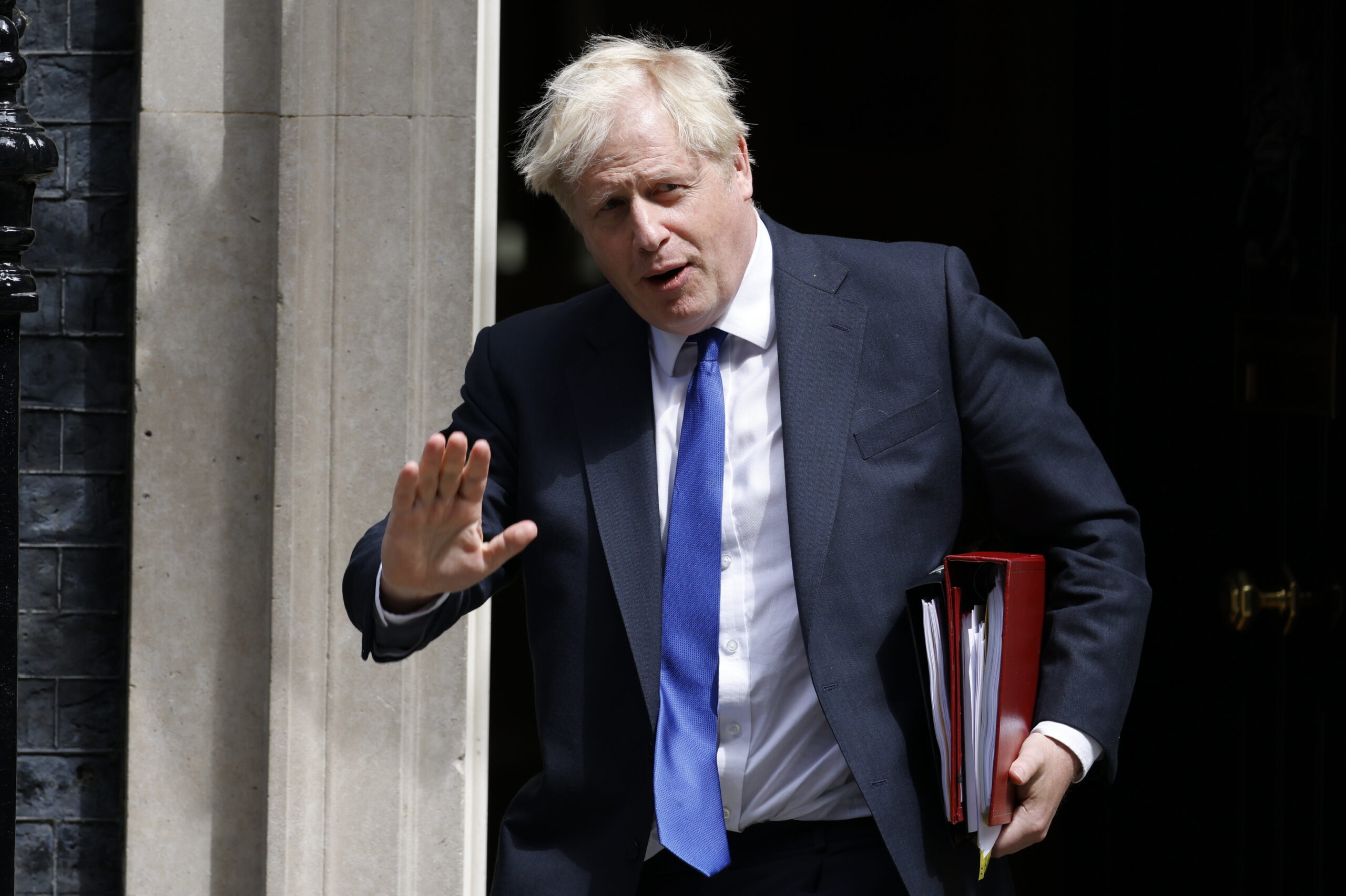Boris Johnson has finally decided to resign from the position of Prime Minister of the United Kingdom, which he has held since July 24, 2019. The “premier” will make his resignation public throughout Thursday, although he wants to remain in Downing Street until the fall, when the Conservative Party elect a new leader.
Despite the initial intention to continue as acting prime minister for three months, dozens of “Tory” deputies publicly expressed their opposition and were in favor of an immediate transfer of power to their “second”, Justice Secretary Dominic Raab, as interim prime minister (as he did during Johnson’s hospitalization for Covid).
Scotland’s chief minister, Nicola Sturgeon, who has just launched her own campaign for a second independence referendum, also questioned Johnson’s possible temporary retention in his post: “It is not a sustainable solution, considering the sense of chaos in which we have lived for months”.
Johnson announced his decision at 8:30 in the morning (one more hour in Spain) in a call to the president of the 1922 Parliamentary Committee, Graham Brady, who spent several hours the night before trying to convince the “premier” to throw in the towel . The “premier” agreed with Brady on the schedule, including his immediate resignation to call a contest for the conservative leadership before July 21, when Parliament’s summer break begins.
Johnson’s successor will be announced three years after his own rise to power, on July 22, 2019, following the leadership contest sparked by Theresa May’s resignation. Johnson then won by 66% to 34% of the vote over his rival, former Foreign Secretary Jeremy Hunt.
Throughout the night, the most faithful members of his cabinet, including the new Treasury Secretary Nadhim Zahawi, pressured the “premier” to give up his resistance and accept reality: the desertion of his ministers and the total lack of support among their own MPs at Westminster. Shortly before his resignation was confirmed, more than 50 members of the Cabinet had published forceful letters asking the “premier” to withdraw.
The resignation of the politician who made Brexit possible, six years after the victory in the referendum, had a great impact in Brussels and other European capitals, where he was always perceived as an unreliable leader, despite his efforts to strengthen ties with President Joe Biden and with Emmanuel Macron in their latest meetings.
The announcement was preceded by speculation that Johnson may have ultimately opted for a Donald Trump-style “nuclear option,” forcing a snap election and drawing the Queen into the political crisis. On Wednesday, during his double parliamentary appearance in which he again and again dodged calls for resignation, Johnson himself was elusive about his intentions.
Opposition Labor leader Keir Starmer meanwhile celebrated Johnson’s resignation as “good news for the country” after the “pathetic spectacle” of recent months. “The resignation should have happened a long time ago,” Starmer said. “This government has been maintained based on lies, scandals and fraud. It was clear that Boris was not a person qualified for the position, and those who have allowed him to do so must take responsibility for him.”
Conforms to The Trust Project criteria
















